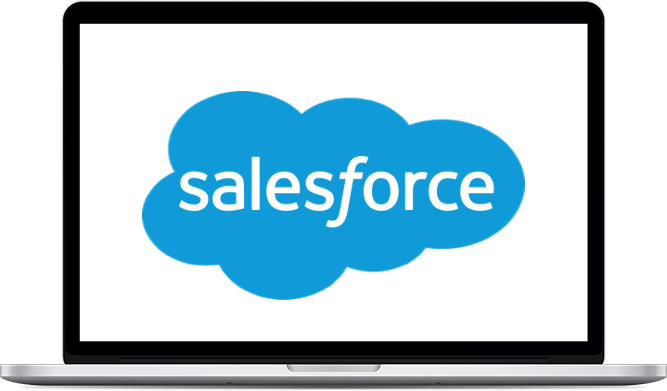Are you currently in need of Salesforce Aptitude test past questions and answers? If yes, this page provides Sales Force interview questions and answers compiled in PDF soft copy format. To scale through Sales Force job interview as a prospective candidate for her exam, then it is important that you study original Sales Force interview past questions. The material is to help you go through Salesforce interview questions and answers. Also download Sales Force Consulting past questions and answers.
Table of Contents
Sales Force Past Questions
Do you have what it takes to pass Sales Force exam? If at all you think you need to build more confidence and assurance in passing the examination then it is important that you download Sales Force interview questions which have been offered on this page for you to download in PDF soft copy.
Passing Sales Force job interview can be a great deal as so many other candidates will be sitting the same exam with you and the exams is a bit tactical. At this point, you can now imagine that it is only those who score very high will stand a chance to be selected. Are you one of the candidates that will take the screening aptitude test exam? If yes, then what you need right now to guarantee your success is Sales Force exam past questions and answers.
In coming search:
- Salesforce Exam Questions
- Salesforce Admin practice test questions
- Salesforce Admin test questions
- Salesforce Admin questions
- Salesforce Online Test sample questions
- salesforce assessment test questions
- salesforce assessment exam questions
- salesforce exam past questions
Salesforce Aptitude Test Past Questions and Answers
This page provides Sales Force job questions and answers. We have compiled up to date Sales Force test questions and answers for you to enable prepare for the exam interview. The components of Sales Force exam study guide are Mathematics, Verbal Reasoning, English Language and General knowledge. There are benefits you get when you download and study this material. Some of they are:
Benefits of Salesforce aptitude test past questions
- You’ll see examination past questions of the previous year’s which answers have been provided accordingly.
- Most questions repeat so you take note of those ones that are likely to repeat.
- You will not just ace the interview exam but also do so with a high cumulative mark.
- You stand a chance to surpass other candidates who do not have access to a preparatory study guide.
- The past question papers will expose you to the exam format and patterns so that you can get used to it before the main exam day.
Why you need Salesforce Aptitude Test Past Questions
The most important reason why you need these past questions is to help you pass the exam interview. However, you too must pay the price to study Sales Force CBT exam questions and answers contained in the study pack you are about to download. That is the only way you can pass this exam. The secret is preparation, and nothing more than that.
Free Salesforce Exam past questions
Are you looking for free Sales Force exam questions? If yes, then welcome to the best place to download real Sales Force interview past questions. On this page, you will be given free Sales Force the question papers. They are limited in number as they are mere extract from the complete past questions. The essence of these samples is to give you an idea as to what is contained in the main compiled series. You can study the following free Sales Force interview questions below.
Free Salesforce Interview Questions and Answers
-
What is Salesforce?
Salesforce is the most effective Customer Relationship Management (CRM) product that is delivered to subscribers as a cost-effective software-as-a-service (SaaS).
-
What is a custom object in Salesforce?
In Salesforce, custom objects refer specifically to database tables that store data related to your company in Salesforce.com.
-
What does a custom object permit the user to do?
Once the custom object is defined, the subscriber can perform the following tasks: create custom fields, relate the custom object to other records, track events and tasks, build page layouts, create a custom tab for the custom object, analyze custom object data, create dashboards and reports, and share custom tabs, custom apps, custom objects, and various other related components. None of these tasks can be accomplished until the custom object has a definition.
-
What is Self-Relationship?
A Self-Relationship is a lookup relationship to the same object. It is this premise that allows users to take the object “Merchandise” and create relationships with other objects.
-
What is Object Relationship Overview?
In Salesforce, the object relationship overview links custom object records to standard object records in a related list. This is helpful to track product defects in related customer cases. Salesforce allows users to define different types of relationships by creating custom relationship fields on an object.
-
What can cause data loss in Salesforce?
Data loss in Salesforce can be caused by a number of reasons, including:
- Changing data and date-time.
- Migrating to percent, number, and currency from other data types.
- Changing from the multi-select picklist, checkbox, auto number to other types.
- Altering to multi-select picklist from any type except picklist.
- Changing to auto-number except for text.
- Changing from text-area to e-mail, phone, URL, and text.
-
How is SaaS beneficial to Salesforce?
SaaS is subscription-based, so clients can choose not to renew and discontinue using the program at any time without penalty other than not being able to use Salesforce. SaaS is intended to help users avoid heavy initial startup fees and investments. SaaS applications use a simple Internet interface supported by easy integration.
-
How does Salesforce track sales?
Salesforce is a tracking program that records a number of helpful basic details, such as:
- Number of customers served daily
- Daily sales volume
- Detailed reports from Sales Manager
- Sales figures by month or quarter
Most importantly, Salesforce tracks and reports repeat customer activity, which is the key to any sales organization.
-
How many types of relationships are offered by Salesforce.com?
Salesforce recognizes two relationship types: Master-detail relationships and Lookup relationships.
-
What is the trigger?
The trigger is the code that is executed before or after the record is updated or inserted.
-
What is the difference between Trigger and Workflow?
Workflow is an automated process that fires an action based on evaluation criteria and rule criteria. As described above, Trigger is the code that is executed on or after the record is updated or inserted.
-
What is a static resource in Salesforce?
With Salesforce’s static resource, subscribers can upload zip files, images, jar files, JavaScript, and CSS files that can be referred in a Visualforce page. The optimum size of static resources in Salesforce is 250 MB.
-
What is the difference between Force.com and Salesforce.com?
Force.com is Platform-as-a-Service (PaaS), while Salesforce.com is Software-as-a-Service (SaaS).
-
Is there a limit for data.com records?
Salesforce users can see their limit form setup easily by simply clicking data.com administration/Users. From the data.com users section, the users can see their monthly limit and exactly how many records are exported during the month.
-
What are the three types of object relations in Salesforce?
The three types of object relations in Salesforce are:
- One-to-many
- Many-to-many
- Master-detail
The relation types are quite logical once the user becomes familiar with the software program.
-
What are the different types of reports available in Salesforce?
The different types of reports in Salesforce are:
- Tabular report that displays the grand total in table form
- Matrix report where grouping is based upon both rows and columns
- Summary reports are detailed reports in which the grouping is based on columns.
- Joined report which allows two or more reports to be joined in a single report.
- Is it possible to schedule a dynamic dashboard in Salesforce?
In Salesforce, it is not possible to schedule a dynamic dashboard.
-
What is the junction object and what purpose does it serve?
Junction objects are used to build many-to-many relationships between objects. For example, the user can take a recruiting application where a position for a job can be linked to many candidates or can link a candidate to many other jobs. In order to connect the data model, a third party object is referred to as a junction object. In the given example, the junction object is “job application.”
-
What is an Audit Trail?
The Audit Trail function in Salesforce is useful for gaining information or for tracking all the recent setup changes that the administration has done in the organization. The audit trail can preserve data for up to six months.
-
Explain the Salesforce dashboard?
In Salesforce, the dashboard is a pictorial representation of the report. 20 reports can be added to a single dashboard.
-
What is the difference between SOQL and SOSL?
SOQL is Salesforce Object Query Language and SOSL is Salesforce Object Search Language. If you are sensing that Salesforce is a culture unto itself, you are correct!
-
What is a Wrapper Class?
A Wrapper Class is a class whose instances are a collection of other objects and is used to display different objects on a Visualforce page in the same table.
-
What is the sharing rule?
The sharing rules are applied when a user wishes to allow access to other users.
-
What are some benefits of using Salesforce?
Salesforce comes with a number of benefits. The most major ones are:
- Helps to understand the needs of the customer
- Provides a single communication platform for all the team members of a project
- Reporting is quick and seamless
- Has a very high degree of adaptability
- Very easy to manage
- Can integrate with countless apps (eg: Dataloader, Mailchimp, Ebsta)
-
What is an object in Salesforce?
An object is a database table that contains data specific to an organization (columns are fields and rows are records). There are two types of objects in Salesforce – custom object and standard object.
- Standard object – A standard object is created by default in Salesforce. Eg: Contact, Account, and Lead.
- Custom object – A custom object is created by the user and can contain any information that the user wants. Eg: You can create a custom “Location” object to store information about the location of various branches of a company.
How to download Complete Salesforce Interview Questions and Answers
To get the complete Salesforce aptitude test past questions which contains more than one thousand questions with correct answers, pay the sum of 3,500 naira to the account details below.
Bank Name: Guarantee Trust Bank (GTB)
Account Number: 0523296040
Account Name: JAMES MKPONKEABASI CLEMENT
What to do next after payment has been made for your desired Past Question Papers
After making paying the allotted amount for the past questions you need, quickly send the following to us as a text message or through what.
- Proof of payment (e.g, screenshot of payment receipt).
- Email address and whatsapp number for delivery.
- Depositor’s name.
With the above information, we will be able to verify your payment and also know the medium with which the past question papers will be delivered to you. Once you confirm your payment, the past questions will be delivered to you within 5 minutes.
Assurance of Delivery
We understand how difficult it is to transact online as there are so many scam online lately. We considered this and that’s why we have provided some samples above which are extracted from the complete past question paper. That is to show that your preferred past question paper is available as seen and will be delivered to you immediately.





